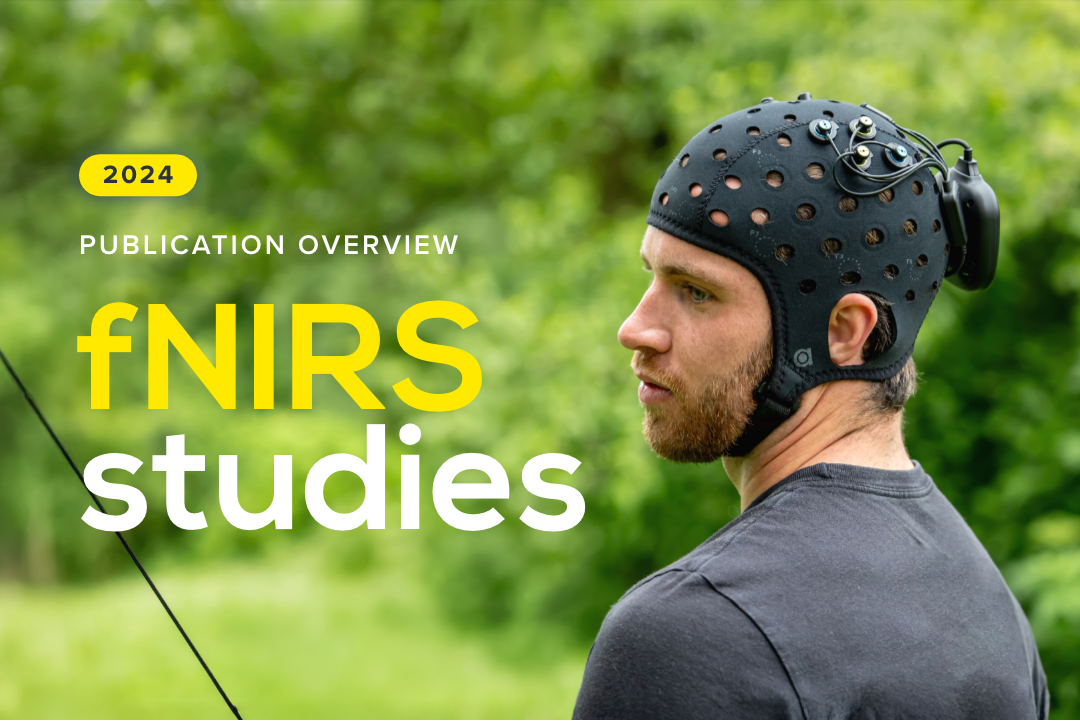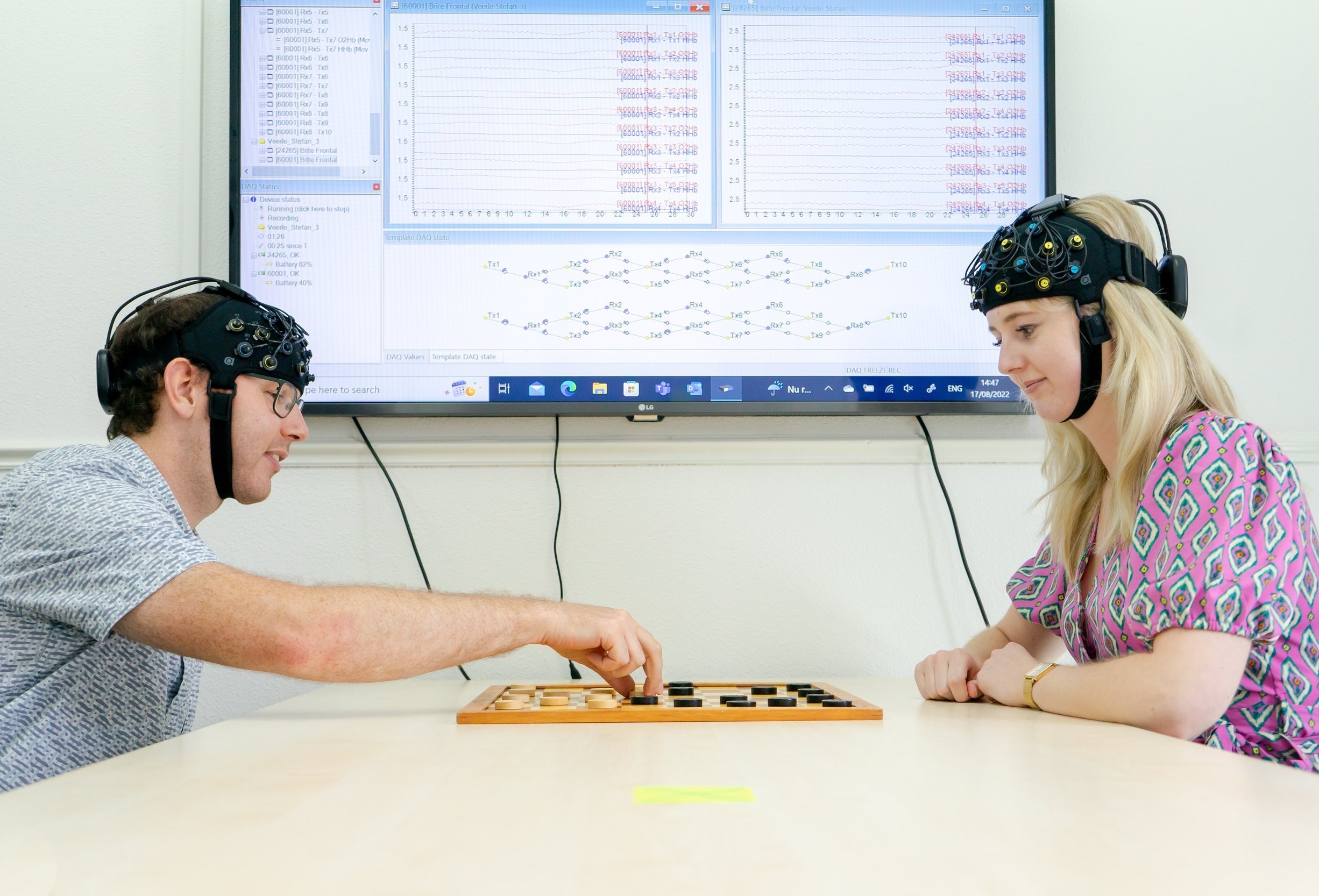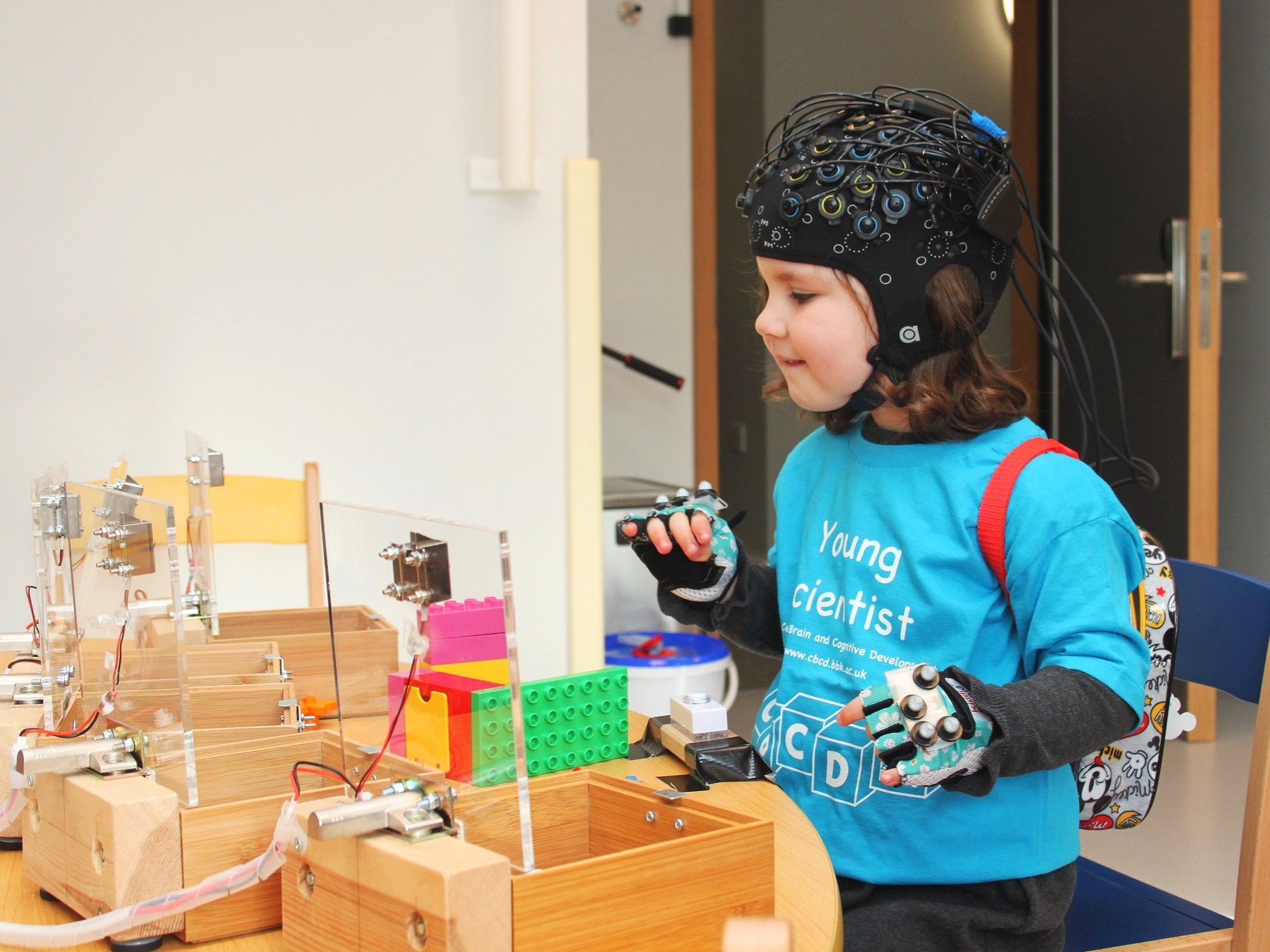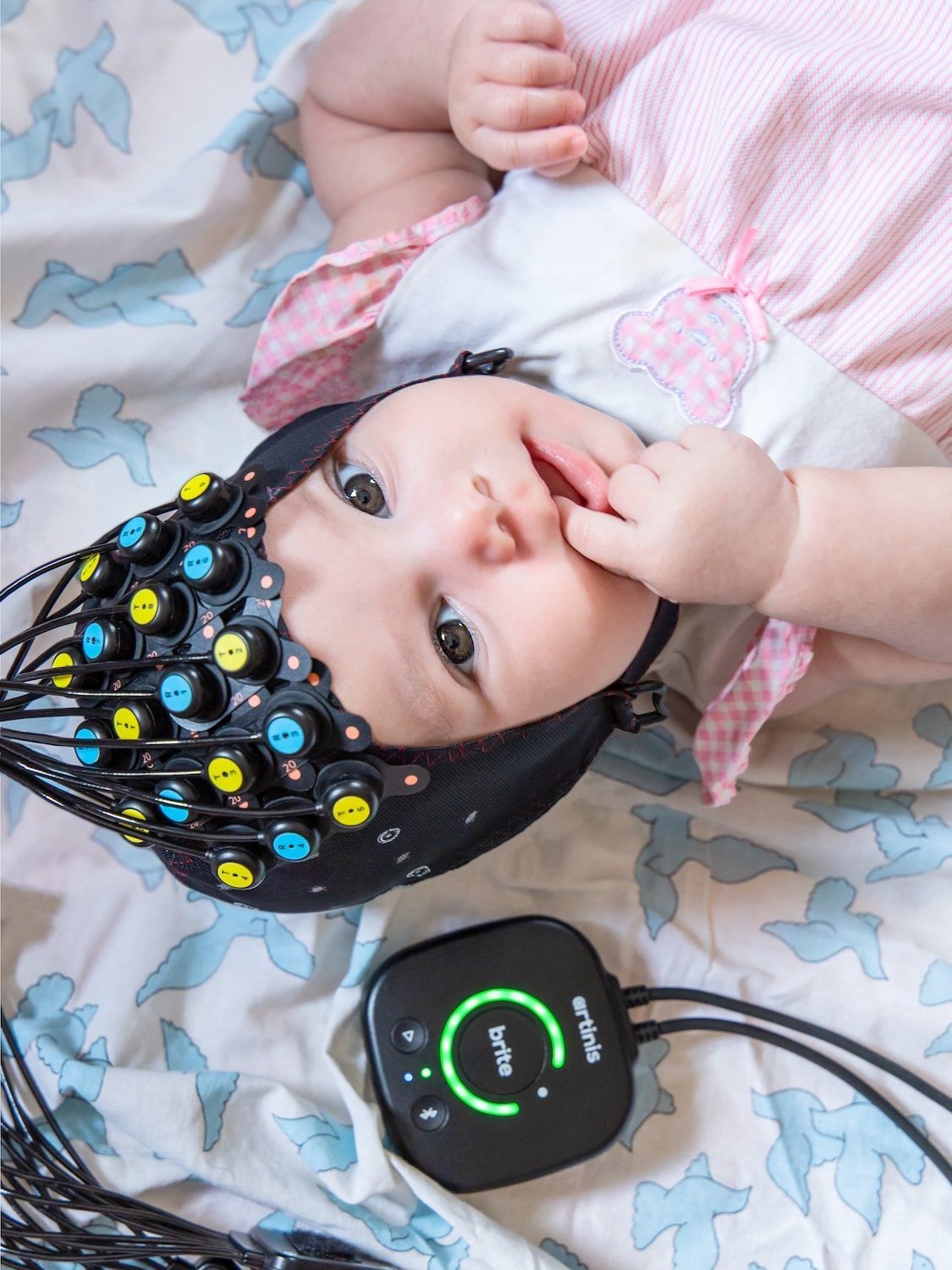Hyperscanning
Hyperscanning is a neuroimaging technique that involves simultaneously recording brain activity from two or more individuals while they interact with each other. Using Functional Near-Infrared Spectroscopy (fNIRS), this technique allows researchers to study real-time brain-to-brain interactions by measuring hemodynamic responses and inter-brain connectivity.
Hyperscanning enables the exploration of neural mechanisms underlying social interactions, cooperative tasks, and synchronized brain activity among others. fNIRS is particularly suited for hyperscanning due to its non-invasiveness, portability, and ability to record brain activity under naturalistic settings. By measuring changes in blood oxygenation, fNIRS provides valuable insights into cortical brain function.
What can hyperscanning be used for?
The use of fNIRS for hyperscanning is versatile and offers a wide range of research applications.
Hyperscanning is particularly valuable for looking into the neural pathways behind communication, cooperation, competition, and other interactive behaviors. By simultaneously monitoring the brain activity of multiple participants, researchers can examine inter-brain connectivity and understand how collective neural dynamics facilitate social behavior.
Some different research applications include:
Social Cognition and Neuroscience:
Investigating how people understand and respond to others' emotions, intentions, and actions.
Studying empathy, theory of mind, emotional contagion, and the neural basis of social interactions such as cooperation and communication.
Educational Research:
Exploring teacher-student interactions and how synchronized brain activity can enhance learning.
Assessing collaborative problem-solving among students and how collaborative learning impacts brain function and educational outcomes.
Psychiatry and Clinical Psychology:
Examining social deficits in disorders such as autism spectrum disorder (ASD), schizophrenia, and depression.
Developing interventions to improve social functioning in clinical populations and understanding neural synchrony in these disorders.
Developmental Psychology:
Studying brain development and social behavior in children and adolescents.
Understanding how children’s brains develop the ability to understand and predict others’ actions.
Neuroscience of Communication:
Analyzing how verbal and non-verbal communication is processed in the brain.
Understanding the neural basis of effective communication and miscommunication.
Human-Computer Interaction:
Enhancing the design of interactive systems and interfaces by understanding how humans and machines interact.
Developing brain-computer interfaces that facilitate better human-machine cooperation.
Organizational Behavior and Team Dynamics:
Examining team dynamics, leadership, and decision-making processes in workplace settings.
Studying the neural basis of teamwork, leadership, and group decision-making.
Assessing how different leadership styles affect group performance and dynamics.
Cognitive Neuroscience:
Evaluate how brain-to-brain synchrony influences cognitive processes like attention, memory, and problem-solving.
Our devices are ideal for hyperscanning studies thanks to their proven reliability, portability, and user-friendly design.
Every member of the Brite family supports hyperscanning, making it easy to adapt to your research needs. For large-scale fNIRS hyperscanning with up to 30 participants, explore the power of the Brite Ultra.
Hyperscanning using the Brite system
Some key hyperscanning studies using Artinis devices
Clinical research
Panico, F., De Marco, S., Sagliano, L., D’Olimpio, F., Grossi, D., & Trojano, L. (2021). Brain hemodynamic response in examiner–examinee dyads during spatial short-term memory task: an fNIRS study. Experimental Brain Research, 239, 1607-1616.
Research on social cognition
Shih, Y. T., Wang, L., Wong, C. H., Sin, E. L., Rauterberg, M., Yuan, Z., & Chang, L. (2024). The Effects of Distancing Design Collaboration Necessitated by COVID-19 on Brain Synchrony in Teams Compared to Co-Located Design Collaboration: A Preliminary Study. Brain Sciences, 14(1), 60.
Song, W., Zhou, X., Jiang, Z., Li, Y., Wang, F., Chen, J., ... & Lin, Y. (2022). The performance difference of interdisciplinary teams in the field specific and general innovation tasks. Advances in Engineering Technology Research, 1(3), 1059-1059.
fNIRS made easy
We performed a mini in-house study to test the feasibility of using fNIRS during collaborative hyperscanning tasks in the form of speed checker game using the truly wearable Brite Frontal.
More insights on our fNIRS devices
Are you interested in learning more about a specific (f)NIRS device? Request a free 1-on-1 online demo to see our devices and our software, OxySoft!
Contact us
We’re here to help. We are open to any questions or comments, and we do our best to respond to you as soon as possible.
Artinis Medical Systems
Einsteinweg 17, 6662 PW Elst, The Netherlands
+31481350980










